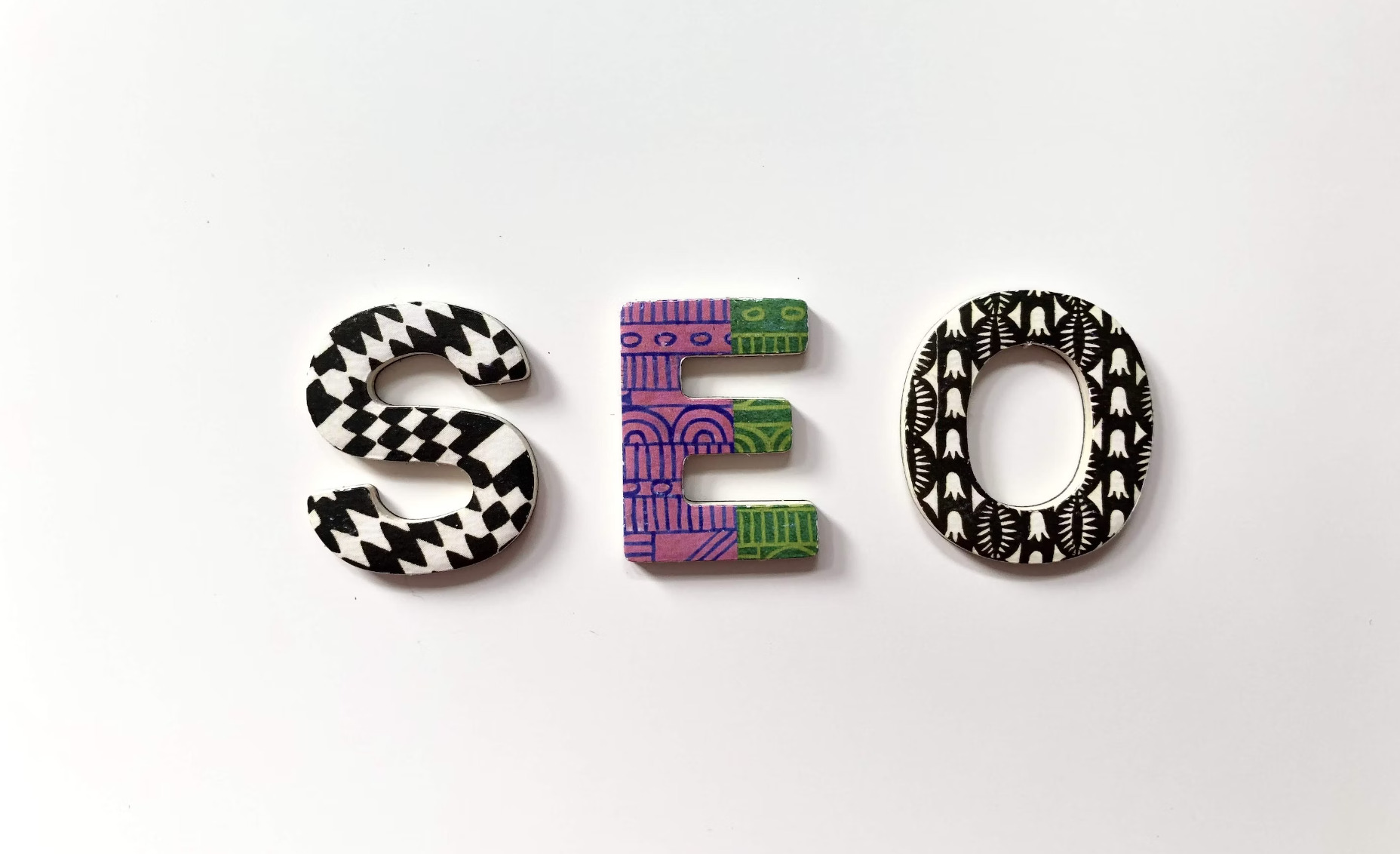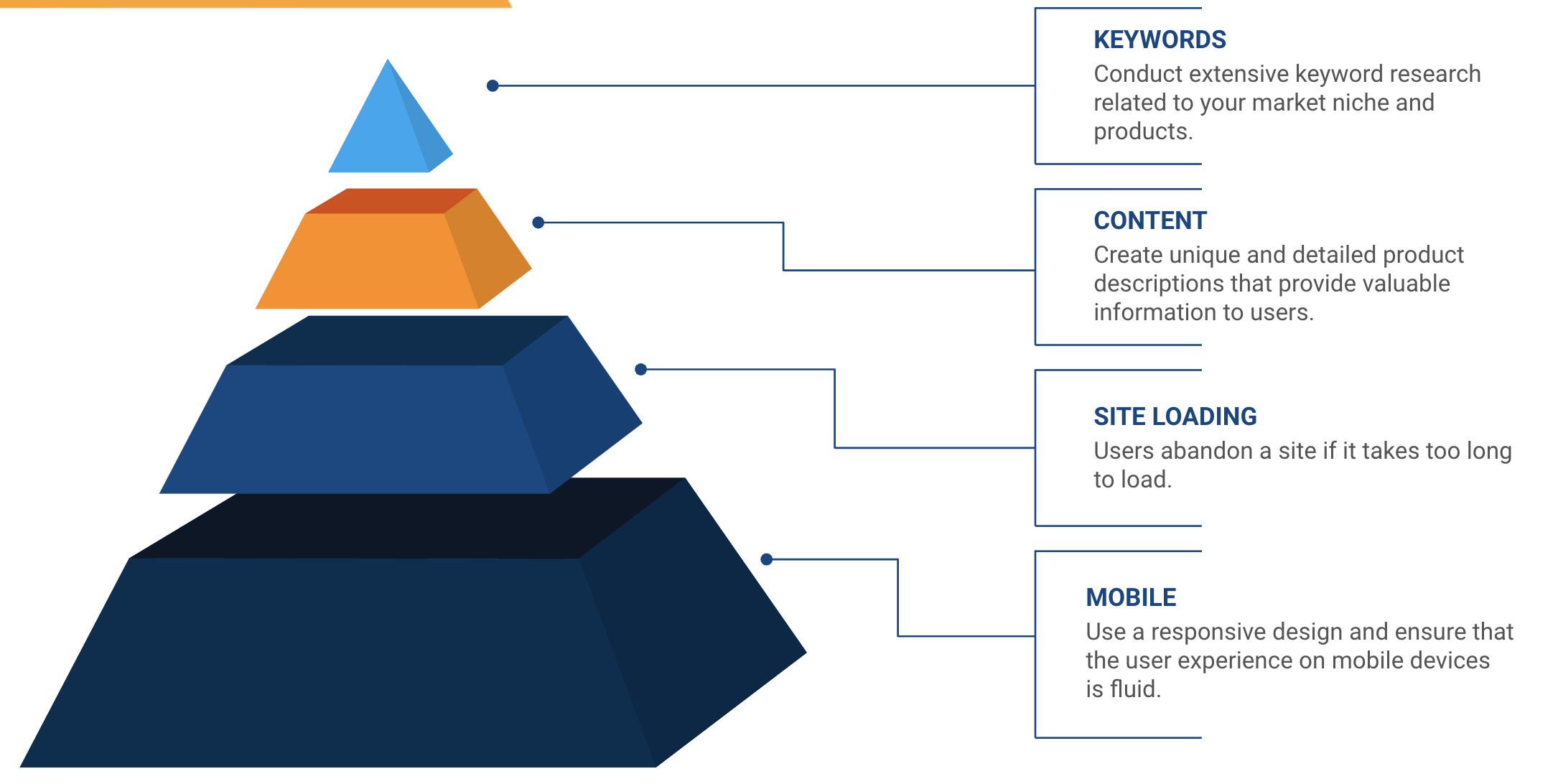How to optimize your e-commerce SEO: tips and best practices
September 14, 2023
Table of contents
Quick Access

In the competitive world of e-commerce, search engine optimization (SEO) is essential to the success of your website. Good SEO can increase the visibility of your online store, attract more organic traffic, and ultimately boost sales.
But what is SEO?
“Search engine optimization (SEO) is the practice of optimizing the content, structure, and overall online presence of a website to improve its visibility and ranking in search engine results pages (SERPs)” , they explain on the Semrush website, one of the main tools for measuring and monitoring SEO.
SEO can be approached from different points in an e-commerce: research and planning must be done on the keywords that you want to position, develop content related to those keywords and the company's goals, and also evaluate technical SEO and SEO. local. Everything influences the positioning of an e-commerce website.
Strategies to optimize the SEO of your e-commerce website
1. Keyword research
Start by conducting extensive keyword research related to your e-commerce niche and products. Use tools like Google Keyword Planner or SEMrush to identify the most relevant and high-demand keywords. Incorporate these keywords strategically into your site content, including product descriptions, page titles, and image ALT tags.
“Keyword research tells you what topics people are interested in and, assuming you use the right SEO tool, how popular those topics are with your audience. The operative term here is topics: by researching keywords that receive a high volume of searches per month, you can identify and sort your content into topics that you want to create content about. You can then use these themes to determine which keywords to search for and target”, they detailed in a HubSpot article.
2. High quality content
High-quality content is essential for the SEO of an e-commerce website. Create unique and detailed product descriptions that provide valuable information to users. Additionally, consider creating a blog on your website to post content related to your industry and products. This not only improves SEO, but also gives users a reason to return to your site.

3. Image optimization
Images are crucial in ecommerce, but they can also slow down your site's loading speed if they are not optimized correctly. Make sure your images are sized appropriately and use descriptive alt tags to help search engines understand what the image is about.
4. Site loading speed
Site loading speed is an important factor for SEO. Users will abandon a site if it takes too long to load. Use tools like Google PageSpeed Insights to identify and fix performance issues on your website.
“Site speed is key to e-commerce success. It directly influences your conversion rates, repeat business, and search engine rankings. And with recent changes in Google Search ranking, a fast loading speed for your website is even more important as a competitive advantage”, they added in an article from Shopify, one of the main e-commerce platforms.

5. Technical SEO
Don't neglect the technical aspect of SEO. Make sure your site is well structured, with a clear and simple URL hierarchy. Use heading tags (H1, H2, H3) to organize content and make it easier to read. Additionally, create an XML sitemap and submit it to Google to facilitate indexing of your site.
According to an article by CognitiveSEO, there is a checklist that you should always keep in mind regarding technical SEO:
- That the loading speed of the site is optimal.
- Ensure that the usability and functionality of the site is the most effective for users.
- The optimization of the content published on the e-commerce website.
- Create a user-friendly e-commerce website.
6. Mobile optimization
As more and more people shop on mobile devices, make sure your website is mobile-friendly. Use a responsive design and ensure that the user experience on mobile devices is fluid.

7. Internal and external links
Internal and external links are important for SEO. Link your pages internally to improve navigation and page authority distribution. Additionally, look for opportunities to earn links from high-quality, relevant websites.
SEO optimization is an ongoing process that requires time and effort, but the results can be very rewarding. By following these tips and best practices, you can increase the visibility of your ecommerce website and attract more potential customers, which will result in greater success in the world of ecommerce.
Do you need experts in e-commerce development? At Rootstack, we have +12 years of experience supporting companies in their digital transformation. Contact us!
We recommend you this video
Related Blogs
-1.17.37-p.m.png)
We look at how AWS tools help you optimize costs
-10.38.35-a.m.png)
The basics of cloud computing
-9.19.54-a.m.png)
How IT outsourcing services can unlock your project in the retail industry
-5.03.33-p.m.png)
How to explain your project requirements to external mobile app developers
-2.51.54-p.m.png)
Scenarios in which companies should develop custom software
-11.27.07-a.m.png)
